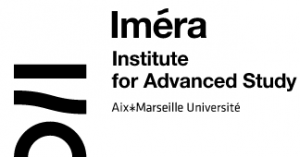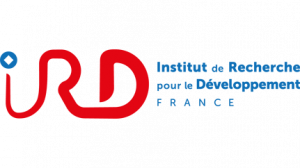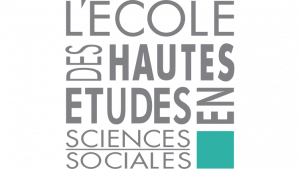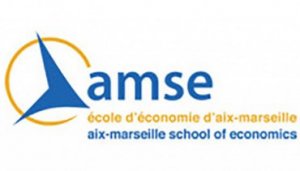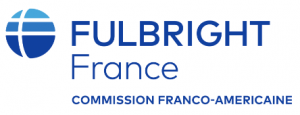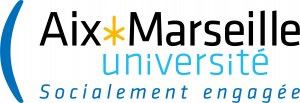IMéRA: Call for applications┋Global Phenomena and Regulation Programme
IMéRA (AMU) is an institute for advanced study and a member of RFIEA (French Network of Institutes for Advanced Study), NETIAS (Network of European Institutes for Advanced Study) and UBIAS (University-Based Institutes for Advanced Studies).
Each year the Institute hosts about thirty artists and scientists of all disciplines (residents), selected after an evaluation procedure with the most stringent international standards, shortlisting of applications and external evaluators.
IMéRA promotes innovative experimental interdisciplinary approaches in all areas of knowledge. Since September 2016, the research activity within the institute has hinged around four thematic programmes: Art, Science and Society; Crossing paths: explorations of interdisciplinarity; Mediterranean programme; Global Phenomena and Regulation
Global Phenomena and Regulation Programme
IMéRA's Global Phenomena and Regulation program addresses all issues of interdisciplinary interest related to globalization phenomena, including the following four:
- Globalization and sustainable development: As explicitly admitted in the UN’s Sustainable Development Objectives (SDOs), human development can only be conceived on a global scale considering the multiple interactions—economic (trade, outsourcing, etc.), demographic (migrations, epidemics, etc.), cultural (connectivity, networks, etc.) and environmental (global warming, etc.)—at play between North and South countries. The main lines of research are the impact of globalization on national and global inequalities, and poverty and public and/or private interventions at both levels to address it; the ecology of poverty; the multi-faceted role of infrastructures in the development process and the reduction of inequalities as well as global infrastructure design.
- Globalization, cultural dynamics and institutional change: This line of research is about exploring the role of globalization in the emergence of new national and transnational cultural dynamics and their potential impact on changes in institution governance at all geographical scales. This specifically includes research into the cultural and institutional dynamics under way in North African countries based on interdisciplinary approaches.
- Migrations: This line of research bears on all determinants of international (including climatic) migrations and their multiple consequences in all geographical domains. It is open to the study of relevant historical cases and more particularly to the analysis of recent international migration dynamics.
- Energy: The final aim is the development of a social science research programme on energy at IMéRA, including in particular: the study of socio-political determinants of energy transitions and associated public authorities’ policy dynamics; analysis and modelling of the world energy market, in particular hydrocarbons, in these times of shale gas and oil and energy hubs; rebuilding the production economic theory taking the above into account, etc.
CONTACT: Raouf Boucekkine, Director of "Global Phenomena and Regulation" Programme - raouf.boucekkine@univ-amu.fr
Applications
Applicants to this call may submit applications either to:
- the general programme described above , or
- one of the specific residencies in partnership listed below.
The choice must be specified in the application form ("Application options").
Schedule
- Deadline : 26 September 2019 at 1:00 pm (french time)
- Duration of residences: 5 or 10 months
Residence periods (to be chosen by the candidates, several choices are possible):
- 7 Sept 2020 to 3 Feb 2021 (5 months - Semester 1)
- 15 Feb 2021 to 9 July 2021 (5 months - Semester 2)
- 7 Sept 2020 to 9 July 2021 (10 months - Full year) - only for scientists
Who can qualify ?
Applications are open to researchers of all disciplines, both junior and senior.
IMéRA also participates in the programs for “Researchers in exile” supported by the French Network of Institutes for Advanced Study (RFIEA) and the French Ministry of National Education, Higher Education and Research (MESR).
To be eligible, applicants must meet the following conditions:
- Carry out a project related to one of the 4 programmes (see above)
- Not to have lived in France more than 12 months during the three years preceding this call for applications;
- For researchers, hold a Doctorate or PhD;
- With the exception of applicants to the programmes for "Researchers in exile", have an employment contract (permanent or not) in a foreign university or research institution during the residency
Remuneration
- Junior: €2,000 net monthly allowance
- Senior: €3,000 net monthly allowance
Junior Class: Researchers who have 2 to 9 years of full-time research experience after obtaining the PhD (PhD training is not considered in the calculation of experience) as at the closing date of the call for applications.
Senior Class: Researchers with minimum 10 years’ experience in full-time research after obtaining the PhD (PhD training is not considered in the calculation of experience) as at the closing date of the call for applications, and university professors.
Selection Criteria
Application assessment criteria include, but are not limited to:
- Candidate's course
- Research project;
- Interdisciplinary component;
- Relevance of the research project in terms of its connection with the Aix-Marseille area (potential local resources – field, archives, etc.).
Residencies in partnership
IMéRA’s Global Phenomena & Regulation programme is sponsored by the 4 following partners:
Global Phenomena and Regulation Programme 2020-2021 IRD/IMéRA chair:
L’Institut de Recherche pour le Développement (IRD): IRD is the French national institution of reference for research in development; it is administratively headquartered in Marseille like IMéRA. IRD’s fundamental and field research activities are based on two fundamental principles: cross-disciplinarity and equitable scientific partnership with institutions in the South. IRD and IMéRA started a collaboration programme as part of a recurrent summer school on SDOs, which gathered for the first time between 7 and 13 July 2016 in Marseille.
IRD/IMéRA “Sustainable Development” Chair: the IRD/IMéRA Chair is basically connected to theoretical and applied research on Sustainable Development Objectives (SDOs). It is aimed at developing innovative interdisciplinary approaches to SDOs.
The chair holder is intended to carry out these goals within a coherent frame allowing to foster cooperation between IRD and IMéRA and to assure sufficient visibility for the chair activities, mainly through public conferences.
Schedule
- Deadline: 26 September 2019 at 1:00 pm (French time)
- Duration of residency: 10 months (preferably)
- Residency period: 7 September 2020 to 9 July 2021
Who can qualify?
The Chair is open to experienced researchers in all disciplines with a regular status in foreign institutions, especially economics or sociology of development, with a research project related to Mediterranean and urban themes (coastal urbanization, energy transition, etc.) or on the theme of emergence (industrialization , etc.).
Global Phenomena and Regulation Programme 2020-2021 EHESS/IMéRA chair
The EHESS (School of Advanced Studies in Social Sciences) is a prestigious French institution devoted to research and teaching in social sciences. The EHESS research and teaching activities also involve members of French and foreign partners. These activities are carried out at the Paris headquarters and at the regional centers of the institution (Lyon, Marseille and Toulouse) as well.
The EHESS-IMéRA chair in "Transregional Studies" aims at developing at the highest international level comparative research among any regions of the world. The research projects proposed should, in particular, take into account the involved scale effects and the related issues of exchange, circulation and connection in the reformulation of social orders. They should also build on innovative and clearly articulated interdisciplinary approaches. The EHESS-IMéRA chair particularly welcomes research projects interested in the comparison between cultural areas.
The chair holder has to carry out these research themes within a coherent frame allowing to foster cooperation between EHESS and IMéRA and to assure sufficient visibility for the chair activities, mainly through public conferences.
- Deadline: 26 September 2019 at 1:00 pm (French time)
- Duration of residence: 10 months (preferably)
- Residence period: 7 Sept 2020 to 9 July 2021
Who can qualify?
The EHESS-IMéRA chair is open to experienced researchers from all social sciences. Applicants should submit an innovative project on trans-regional comparisons among any regions of the world. Special attention will be paid to those projects which analyse contemporary issues from a long-run historical perspective.
Global Phenomena and Regulation Programme 2020-2021 AMSE/IMéRA residency
Aix-Marseille School of Economics (AMSE): AMSE has been recently labeled University Research School for a project of excellence in which AMSE brings together research, teaching and valorization. The research program focuses on economic responses in a changing world. It is based on three pillars: the research center's areas of methodological excellence (dynamic and quantitative macroeconomics, network theory, time series econometrics / panel data), a new methodological area with high potential for teaching and learning research (Big Data), and the geographical location positioned in a privileged way on the Euro-Mediterranean basin.
The AMSE/IMéRA call for projects is open to researchers in economics, but also in the following disciplines, insofar as the project allows for interaction with the economic science: biology and medicine, law, geography, history, mathematics, neuroeconomics, philosophy, statistics, political science and sociology.
Within the framework of this call, all research projects will be considered, especially those that present a certain element of risk in launching a particularly innovative project, and those aiming to produce a work of synthesis. As an example, AMSE/IMéRA are particularly interested in projects concerning network formation, international trade, development, inequalities. Big data issues and historical perspective studies in economic growth are welcome as well.
Schedule
Deadline: 26 September 2019 at 1:00 pm (French time)
Duration of residences: 5 months
Residence periods (to be chosen by the candidates, several choices are possible):
- 7 Sept 2020 to 3 February 2021
- 15 February to 9 July 2021
Who can qualify?
AMSE/IMéRA residences are open to researchers (senior or junior) in all disciplines and of all nationalities.
Global Phenomena and Regulation Programme 2020-2021 French-American Fulbright Commission
The French-American Fulbright Commission was founded in 1948 to promote researcher and teacher mobility between France and the United States. Collaboration between Fulbright and IMéRA started in 2016, when our institute received the Fulbright-Tocqueville Chair held by the American researcher Bill Weeks. Since then, the two institutions have closed an agreement for scientific collaboration, particularly on migration studies (see below).
Fulbright/IMéRA Chair on “Migration Studies”: the Fulbright/IMéRA Chair is open to confirmed American researchers on all the themes related to migration dynamics in full coherence with IMéRA’s programme on this theme (see above). The Chair funds field missions where research focuses on migratory movements in the Mediterranean rim and between Sub-Saharian Africa and Europe.
APPLICATIONS TO THIS CHAIR ARE OPEN UNTIL SEPTEMBER 16th 2019 THROUGH A FULBRIGHT COMMISSION DEDICATED SITE.
Find this Fulbright/Iméra call on fund┋it: http://www.fundit.fr/fr/calls/fulbright-program-francefulbright-imera-a…
Global Phenomena and Regulation Programme 2020-2021 Chaire AUF/IMéRA
Find this AUF/Iméra call on fund┋it: http://www.fundit.fr/fr/calls/chaire-auf-imera
